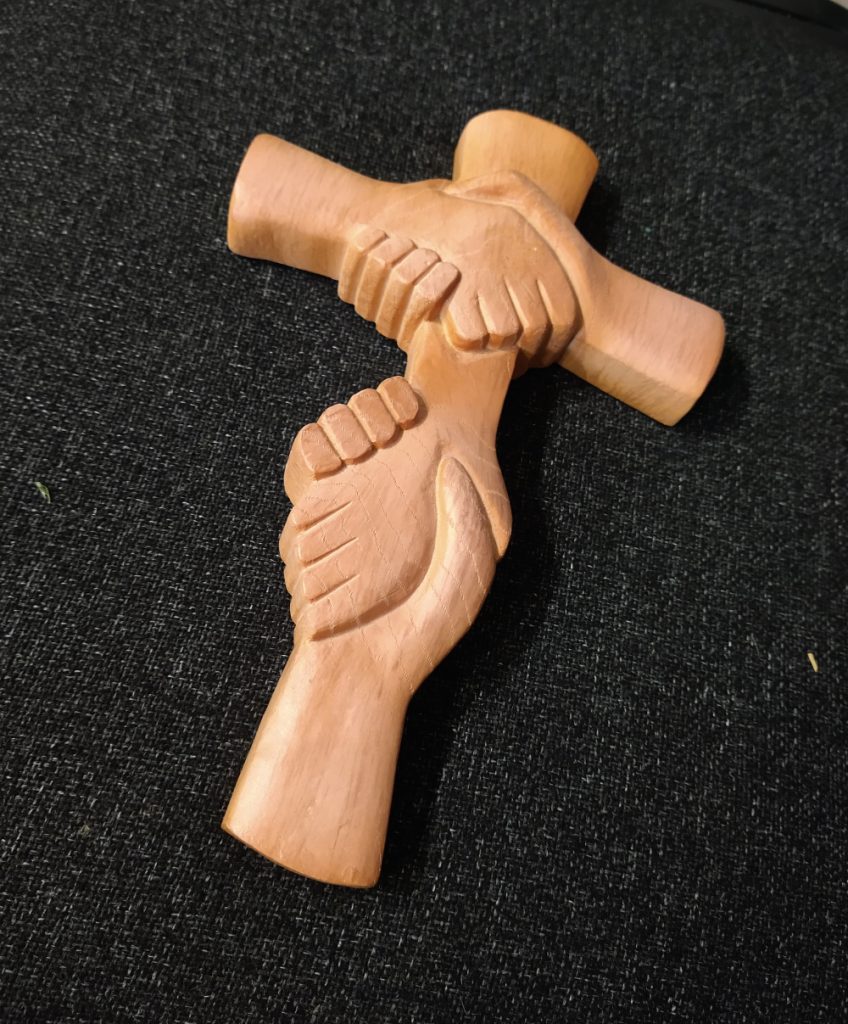
by Reverend Matt Harbge
Readings: Jonah 3:10-4:11; Psalm 145:1-8; Matthew 20:1-16.
In the name of the Father, and of the Son and of the Holy Spirit. Amen.
Generosity is not always easy to accept.
On holiday earlier this year, Cath and I stayed in Cornwall, near where I grew up. For a week we stayed in what can only be described as a 5-star cottage. It had a conservatory, it had a beautiful garden complete with decking and flower beds. It had a TV with a BOSE sound system. It was peaceful, quiet and the weather was perfect. It was amazing. And the best thing? It was completely free.
I wish I could say this cottage belonged to us but actually it was a friend of a relative who due to COVID couldn’t rent the place out so it was empty just at the right time. God sometimes gifts us things. Out of the blue. Now, if something like this has ever happened to you, you can find yourself feeling rather feel guilty, but maybe, if you can accept the gift, you can be thankful, and maybe find ways of being generous in turn.
For Jonah, sulking under the withered bush, it was hard to accept God’s generosity to the people of Nineveh in forgiving their sins. In our Gospel parable, the workers who had done a full day’s hard labour felt, understandably, the generosity of the landowner was unfair when he paid the workers (who only did a couple of hours work) the full days’ wage like them.
But these stories, and last week’s parable about the servant who was let off his massive debt, offer us a fresh outlook: We are being called to love generous mercy.
I’m so glad we were able to explore Confession last week. Confessing our sins and being forgiven by God, as we do at the start of each and every Eucharist, is a beautiful example of God’s generosity and mercy.
We don’t need to try to convince ourselves, or God, that we are just about good enough to be accepted by Him. We can’t earn our membership into the church or buy our way into heaven. That road leads us away from grace, and away from mercy and invites us to see ourselves as self-sufficient and without the need of a saviour.
Instead, it’s precisely because we can’t save ourselves that God’s mercy is so wonderful.
Or, to put it another way, with our vineyard parable in mind – it’s not about how many grapes we’ve gathered that saves us, but rather the fact that we showed up in the first place.
So maybe I might hear you say, why bother serving in the vineyard throughout the heat of the day? Why spend our time and money in serving God and the church and our brothers and sisters in our community?
After all, it is by grace we are saved – not by the number of grapes we pick. So why serve?
We’ll all have our own reasons but I think Dietrich Bonhoeffer, a Luthern pastor who died in a concentration camp in 1945 hits the nail on the head when he once said that grace was free but it wasn’t cheap. He wrote:
“cheap grace is the preaching of forgiveness without requiring repentance, baptism without church discipline. Communion without confession. Cheap grace is grace without discipleship, grace without the cross, grace without Jesus Christ, living and incarnate.”
Real grace then, as a gift from God, is wonderfully merciful and inclusive, but doesn’t leave us as we are. It invites cost, transformation and growth. My relationship with God is the most exciting relationship I have: because God is always inviting me to see the world in a fresh crisp colour. Challenging me to think more deeply about who I am and who I want to be. Stretching me to reach out into the world.
It may unsettle us, how the first are last and the last are first in God’s upside-down economy. But perhaps we can see his graciousness and compassion through it all. We can be proud to serve a God who welcomes everyone – even the late comers to the party. Everyone is significant. No matter our limitations or how often we get things wrong.
So let us learn the message of Jonah and the parable of the vineyard. Let us celebrate the generosity of God – for we need his mercy and his forgiveness and so does every other human being alive or departed. Let us be grateful for all He gives us. Let us avoid jealousy when we are tempted to envious of others: whether they appear to have easy lives or more good fortune than we have.
And let us learn to be generous and merciful to all: in the name of our Lord and Saviour.
Amen.
Recent Comments